第19章 CHAPTER XI(2)
fire they procure by attrition.
From their manner of disposing of those who die,which will be mentioned hereafter,as well as from every other observation,there seems no reason to suppose these people cannibals;nor do they ever eat animal substances in a raw state,unless pressed by extreme hunger,but indiscriminately broil them,and their vegetables,on a fire,which renders these last an innocent food,though in their raw state many of them are of a poisonous quality:as a poor convict who unguardedly eat of them experienced,by falling a sacrifice in twenty-four hours afterwards.If bread be given to the Indians,they chew and spit it out again,seldom choosing to swallow it.
Salt beef and pork they like rather better,but spirits they never could be brought to taste a second time.
The only domestic animal they have is the dog,which in their language is called Dingo,and a good deal resembles the fox dog of England.
These animals are equally shy of us,and attached to the natives.One of them is now in the possession of the Governor,and tolerably well reconciled to his new master.As the Indians see the dislike of the dogs to us,they are sometimes mischievous enough to set them on single persons whom they chance to meet in the woods.A surly fellow was one day out shooting,when the natives attempted to divert themselves in this manner at his expense.The man bore the teazing and gnawing of the dog at his heels for some time,but apprehending at length,that his patience might embolden them to use still farther liberties,he turned round and shot poor Dingo dead on the spot:the owners of him set off with the utmost expedition.
There is no part of the behaviour of these people,that has puzzled us more,than that which relates to their women.Comparatively speaking we have seen but few of them,and those have been sometimes kept back with every symptom of jealous sensibility;and sometimes offered with every appearance of courteous familiarity.Cautious,however,of alarming the feelings of the men on so tender a point,we have constantly made a rule of treating the females with that distance and reserve,which we judged most likely to remove any impression they might have received of our intending aught,which could give offence on so delicate a subject.And so successful have our endeavours been,that a quarrel on this head has in no instance,that I know of,happened.The tone of voice of the women,which is pleasingly soft and feminine,forms a striking contrast to the rough guttural pronunciation of the men.Of the other charms of the ladies I shall be silent,though justice obliges me to mention,that,in the opinion of some amongst us,they shew a degree of timidity and bashfulness,which are,perhaps,inseparable from the female character in its rudest state.It is not a little singular,that the custom of cutting off the two lower joints of the little finger of the left hand,observed in the Society Islands,is found here among the women,who have for the most part undergone this amputation.Hitherto we have not been able to trace out the cause of this usage.At first we supposed it to be peculiar to the married women,or those who had borne children;but this conclusion must have been erroneous,as we have no right to believe that celibacy prevails in any instance,and some of the oldest of the women are without this distinction;and girls of a very tender age are marked by it.
On first setting foot in the country,we were inclined to hold the spears of the natives very cheap.Fatal experience has,however,convinced us,that the wound inflicted by this weapon is not a trivial one;and that the skill of the Indians in throwing it,is far from despicable.Besides more than a dozen convicts who have unaccountably disappeared,we know that two,who were employed as rush cutters up the harbour,were (from what cause we are yet ignorant)most dreadfully mangled and butchered by the natives.A spear had passed entirely through the thickest part of the body of one of them,though a very robust man,and the skull of the other was beaten in.Their tools were taken away,but some provisions which they had with them at the time of the murder,and their cloaths,were left untouched.In addition to this misfortune,two more convicts,who were peaceably engaged in picking of greens,on a spot very remote from that where their comrades suffered,were unawares attacked by a party of Indians,and before they could effect their escape,one of them was pierced by a spear in the hip,after which they knocked him down,and plundered his cloaths.The poor wretch,though dreadfully wounded,made shift to crawl off,but his companion was carried away by these barbarians,and his fate doubtful,until a soldier,a few days afterwards,picked up his jacket and hat in a native's hut,the latter pierced through by a spear.
We have found that these spears are not made invariably alike,some of them being barbed like a fish gig,and others simply pointed.In repairing them they are no less dexterous than in throwing them.A broken one being given by a gentleman to an Indian,he instantly snatched up an oyster-shell,and converted it with his teeth into a tool with which he presently fashioned the spear,and rendered it fit for use:in performing this operation,the sole of his foot served him as a work-board.Nor are their weapons of offence confined to the spear only,for they have besides long wooden swords,shaped like a sabre,capable of inflicting a mortal wound,and clubs of an immense size.Small targets,made of the bark of trees,are likewise now and then to be seen among them.
From circumstances which have been observed,we have sometimes been inclined to believe these people at war with each other.They have more than once been seen assembled,as if bent on an expedition.An officer one day met fourteen of them marching along in a regular Indian file through the woods,each man armed with a spear in his right hand,and a large stone in his left: